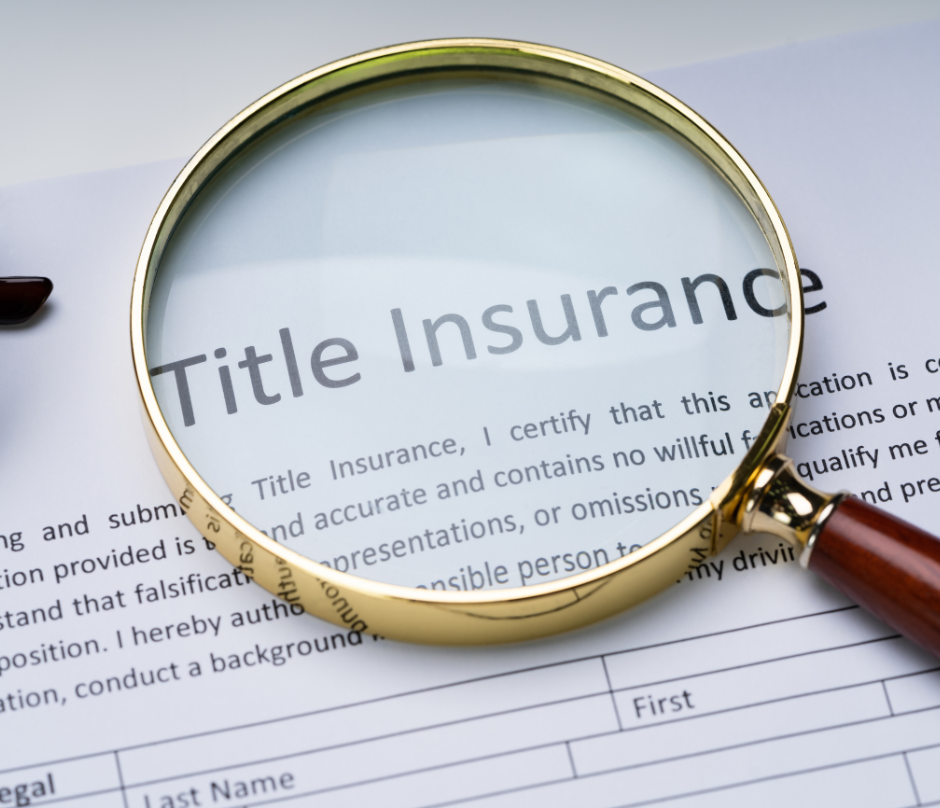In this article, we will present what title insurance covers and why you should get title insurance. Here is the information you may consider.
Title insurance is indemnity insurance that protects home buyers and lenders against financial damage that may be incurred due to flaws in the title to a piece of real estate. The most typical kind of title insurance is called lender's title insurance, which the borrower buys to protect the lender. The other type of title insurance is called owner's title insurance. The seller typically pays for it to safeguard the buyer's equity in the property.
Any transaction involving real estate requires a property to have a clear title. Before a title can be given, the title company must search for the property to look for any claims or liens of any type that may have been filed against it.
An examination of public records, also known as a title search, is performed to determine and confirm the legal ownership of a piece of property and establish whether there are any claims on the land. Incorrect surveys and unsolved construction code violations are two examples of blemishes that might contribute to the title being considered "dirty."
Lenders and homebuyers are protected against financial loss or damage by title insurance if a property's title or actual ownership has flaws, such as liens, encumbrances, or defects. Back taxes, liens from mortgage loans, home equity lines of credit (HELOCs), easements, and competing wills are all common claims that can be lodged against a title. Title insurance, as opposed to ordinary insurance, which protects against the occurrence of future events, protects against claims for events that have already occurred.
The following risks are typically covered by the basic owner's title insurance policy:
Lender's title insurance and owner's title insurance, which might include extended coverage, are the two types of title insurance that are offered. A lender's title insurance policy covers the lender if the seller cannot legally transfer the title of ownership rights to the borrower. Virtually all lenders require the borrower to acquire a lender's title insurance policy. The lender is the sole party protected by a lender's policy from financial loss. When a policy is issued, it indicates that a title search has been completed, which provides the buyer with some certainty.
There is a requirement for additional protection in the form of an owner's title insurance policy because title searches are not foolproof, and the owner continues to be in danger of monetary loss. You must obtain a lender's title insurance to obtain a mortgage loan; however, the owner's title insurance, typically accepted by the seller and given to the buyer as additional protection against title flaws, is completely voluntary.
After you have paid your mortgage in full and are no longer responsible for its payment, you should consider purchasing owner's title insurance on your property because you will now own a larger portion of it. Consequently, you must lose more money if you file a claim. This is a very important consideration if you intend to spend a significant amount of time in your house.
If a title defect is present, the parties involved in the transaction are at severe risk if they do not have title insurance. Imagine a buyer who spends months looking for the home of their dreams, only to find out after the sale that the previous owner had outstanding property tax obligations.
If the buyer does not have title insurance, then the buyer is completely responsible for meeting the financial obligations associated with this claim for past taxes. They will either have to pay the back property taxes or risk having the home taken away by the agency responsible for collecting the taxes.
Regarding title insurance, the coverage covers the buyer for as long as they own the property or are interested in it. This is the case regardless of how long the buyer has owned the property.

Similarly, lenders' title insurance protects financial institutions and other mortgage lenders against flaws such as unregistered liens, access rights, and other encumbrances. A lender would be protected up to the mortgage amount if a borrower defaults on their loan and there are any problems with the title to the property.
Before purchasing a property, real estate investors should ensure that the property in question does not have a cloud on its title. For instance, homes in the foreclosure process can still have a few unresolved problems. Buyers should strongly consider acquiring owner's title insurance to safeguard themselves against unanticipated claims made against the property's ownership.
When a title defect is present, the parties involved in the transaction are at severe risk if they do not have title insurance. Imagine a buyer who spends months looking for the home of their dreams, only to discover that the previous owner has outstanding property tax obligations after the sale.
If the buyer does not have title insurance, then the buyer is completely responsible for meeting the financial requirements of this claim for unpaid taxes. When buyers purchase title insurance, they are covered under the policy for the duration of their property ownership or interest. Similarly, the lender's title insurance protects banks and other mortgage lenders against unrecorded liens, unrecorded access rights, and other problems.
After the property purchase agreement is signed, an escrow or closing agent shall begin insurance. To protect everyone, lenders and owners often need policies. Title insurance is purchased once at closing. The owner's title insurance costs $500 to $3,500, depending on your state, insurer, and home price.